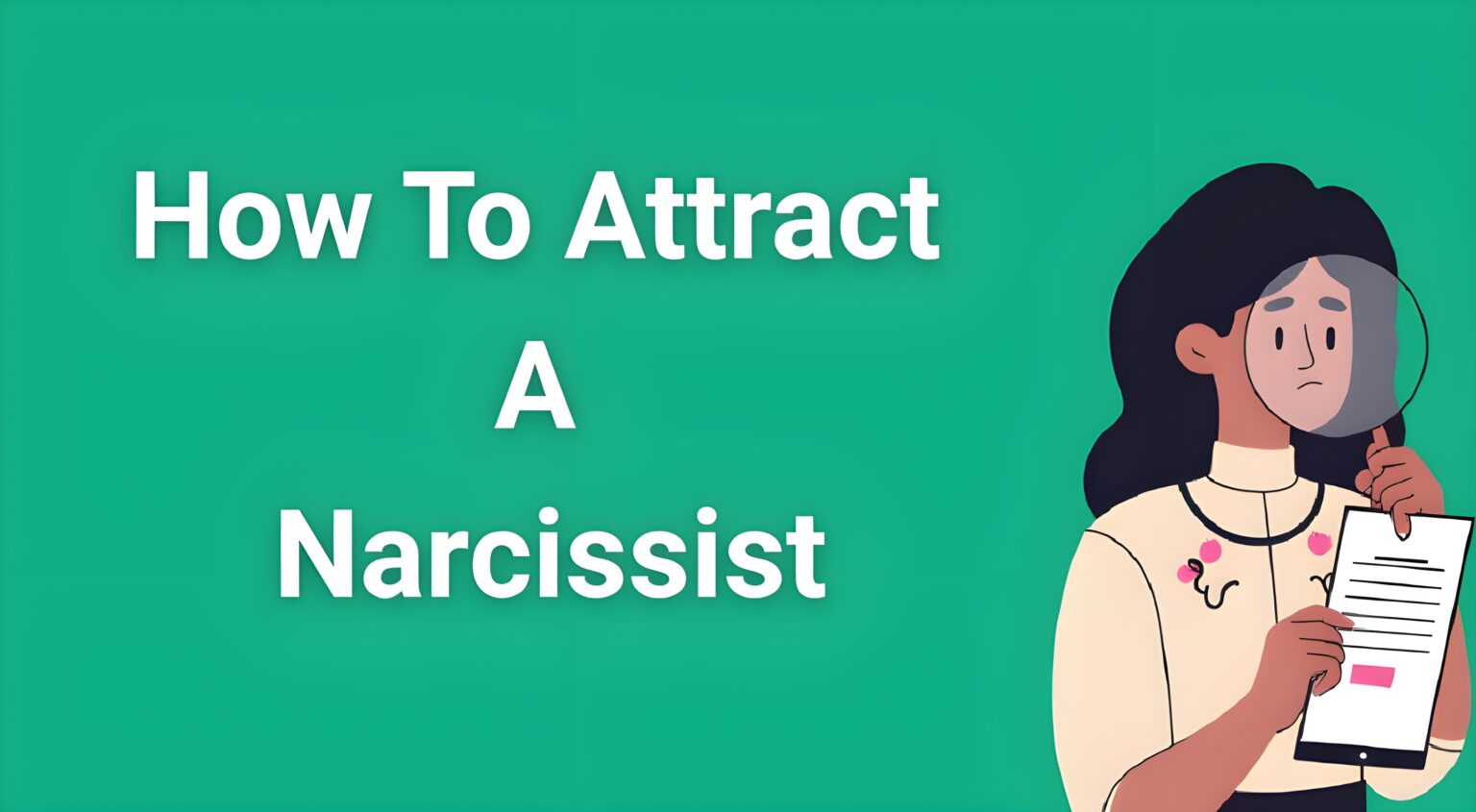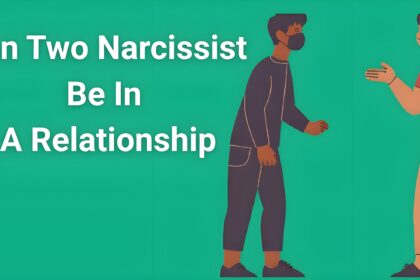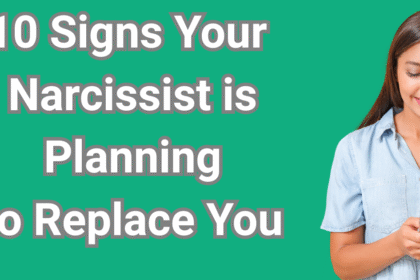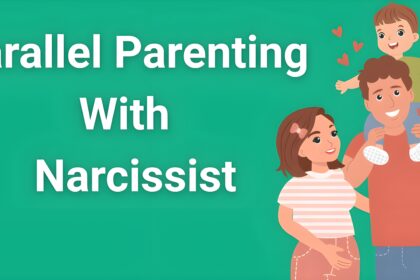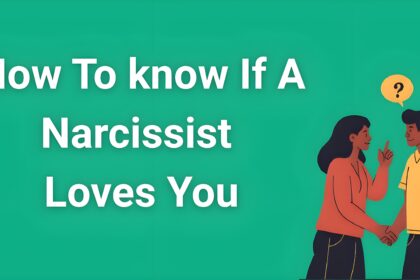If you’ve found yourself repeatedly drawn to narcissistic partners, you’re not alone—and you’re definitely not crazy. Understanding how to attract a narcissist isn’t about intentionally seeking them out; it’s about recognizing the unconscious patterns that make you vulnerable to their manipulation. The uncomfortable truth is that certain psychological traits and behaviors act like a beacon for narcissistic personalities, drawing them directly to you.
- The Psychology Behind Narcissistic Attraction: It’s Not Your Fault
- The 7 Traits That Act Like a Magnet for Narcissists
- The Neuroscience of Trauma Bonding: Why You Can’t Just “Leave”
- Breaking the Pattern: How to Stop Attracting Narcissists
- The Path Forward: Your Journey to Healthy Love
- Frequently Asked Questions
- Conclusion: Your Freedom Begins with Understanding
The cycle feels inescapable: you meet someone charming and confident, fall hard, then find yourself walking on eggshells while questioning your own sanity. Sound familiar? You’re experiencing what millions of survivors know all too well—the devastating impact of attracting the wrong people over and over again.
But here’s what changes everything: once you understand the specific traits that attract narcissists, you gain the power to transform them. This isn’t about changing who you are; it’s about protecting your beautiful, empathetic nature while building the boundaries that keep predators away.
The Psychology Behind Narcissistic Attraction: It’s Not Your Fault
Before diving into the specific traits, you need to understand something crucial: narcissists are master hunters. They’ve developed an uncanny ability to identify people who will provide what they desperately need—narcissistic supply. This supply comes in the form of attention, validation, admiration, and control over another person’s emotions.
Narcissistic attraction operates on a neurological level. Your brain, shaped by childhood experiences and trauma responses, creates specific patterns that narcissists can read like a roadmap. They’re not attracted to weakness—they’re attracted to specific strengths that they can exploit.
The most important thing to understand is that this pattern developed as a survival mechanism. Your empathy, your desire to help others, your willingness to see the best in people—these aren’t flaws. They’re beautiful qualities that became survival strategies, often in childhood, when you learned that giving more of yourself meant receiving love and avoiding abandonment.
The 7 Traits That Act Like a Magnet for Narcissists
1. High Empathy and Emotional Intelligence
Your ability to deeply understand and feel others’ emotions is both your greatest gift and your biggest vulnerability when it comes to attracting narcissists. Empaths naturally tune into emotional frequencies, which means you can sense a narcissist’s hidden insecurity and pain beneath their grandiose exterior.
This creates a dangerous dynamic: your empathy makes you want to heal them, while their emptiness makes them want to consume your emotional energy. You see their potential and believe you can love them into wholeness, while they see an endless source of validation and attention.
Narcissists specifically target highly empathetic individuals because empaths:
- Naturally prioritize others’ needs over their own
- Make excuses for bad behavior by focusing on underlying pain
- Stay in relationships longer, hoping to “fix” their partner
- Provide consistent emotional reactions that fuel narcissistic supply
The key isn’t to become less empathetic—it’s to learn how to protect your empathy with strong boundaries and realistic expectations about what you can and cannot heal in another person.
2. Unresolved Childhood Trauma and Attachment Issues
Perhaps the most significant factor in how to attract a narcissist lies in your earliest relationships. If you experienced narcissistic abuse, emotional neglect, or inconsistent caregiving in childhood, your nervous system learned to equate love with chaos, unpredictability, and having to earn affection.
This creates what psychologists call “trauma bonding”—your brain becomes addicted to the biochemical cocktail of stress hormones and relief that characterizes toxic relationships. The highs and lows feel like love because they match your earliest template for attachment.
Common childhood experiences that increase narcissistic attraction include:
- Having a narcissistic parent who demanded perfection
- Emotional neglect that taught you to minimize your own needs
- Inconsistent parenting that created anxious attachment patterns
- Being parentified and forced to manage adult emotions as a child
Your adult brain seeks the familiar, even when the familiar is harmful. Breaking this pattern requires conscious effort to retrain your nervous system and develop secure attachment patterns—a process that’s absolutely possible with the right support and tools.
3. People-Pleasing and Difficulty Setting Boundaries
If you find yourself constantly saying yes when you mean no, apologizing for things that aren’t your fault, or feeling guilty when you prioritize your own needs, you’re displaying classic people-pleasing behaviors that narcissists find irresistible.
People-pleasers are attractive to narcissists because they:
- Rarely enforce consequences for bad behavior
- Prioritize keeping peace over addressing problems
- Take responsibility for others’ emotions and reactions
- Sacrifice their own comfort to avoid conflict
This pattern often develops in childhood as a survival strategy. If love felt conditional based on your behavior, you learned that being “good” and accommodating was the key to safety and connection. Unfortunately, this same strategy makes you vulnerable to manipulation in adult relationships.
The solution isn’t to become selfish or stop caring about others. Instead, it’s about learning that healthy relationships require mutual respect and that true intimacy is only possible when both people can be authentic—including when that means disappointing someone else.
4. Low Self-Worth Despite Outward Success
Here’s a counterintuitive truth: narcissists aren’t only attracted to people with obviously low self-esteem. They’re often drawn to high-achieving, successful individuals who have hidden pockets of insecurity and self-doubt.
You might be incredibly accomplished in your career, praised by friends and colleagues, and appear confident to the outside world. But beneath that success, you might struggle with:
- Imposter syndrome and fear of being “found out”
- Chronic feelings of not being “enough” despite achievements
- Seeking external validation to feel worthy
- Perfectionism that masks deep insecurity
Narcissists are skilled at identifying these hidden vulnerabilities. They can sense when someone’s external confidence doesn’t match their internal self-perception, and they use this knowledge to create dependency. They alternate between worship and criticism, feeding your need for validation while simultaneously undermining your confidence.
5. Strong Desire to Help and “Fix” Others
Your natural inclination to see the best in people and believe in their potential for change is a beautiful quality that makes you a wonderful friend, partner, or family member. However, this same quality can make you a prime target for narcissistic manipulation.
Narcissists present themselves as damaged souls who just need the right person to believe in them. They share carefully crafted stories about their troubled past, their misunderstood nature, or their dreams of becoming better. Your helper instinct kicks in, and you believe you can be the one to finally help them heal.
This creates several problematic dynamics:
- You take responsibility for their growth and healing
- Their lack of change becomes evidence that you’re not trying hard enough
- You invest more energy in their potential than in your actual experience with them
- Your focus on “fixing” them prevents you from addressing your own needs
The reality is that lasting change can only come from within. While support and encouragement can be helpful, no amount of love, patience, or sacrifice can heal someone who isn’t committed to doing their own inner work.
6. Tolerance for Inconsistent Behavior and Mixed Messages
If you’ve learned to normalize emotional chaos, you’re likely to tolerate the hot-and-cold behavior that characterizes narcissistic relationships. This tolerance often develops from early experiences where inconsistency was the norm, teaching you to accept breadcrumbs of affection and attention.
Narcissists use intermittent reinforcement—unpredictable patterns of kindness and cruelty—to create powerful psychological bonds. This technique is so effective because your brain becomes addicted to the relief and joy that comes with their occasional warmth, making you willing to endure increasing amounts of mistreatment for those brief moments of connection.
Signs you’ve normalized inconsistent behavior include:
- Making excuses for someone’s changing moods and treatment of you
- Feeling like you’re walking on eggshells to avoid triggering them
- Believing that their good moments represent their “true self”
- Accepting that love naturally involves frequent misunderstandings and hurt
Healthy relationships are characterized by consistency, reliability, and mutual respect. While everyone has bad days, consistent patterns of hot-and-cold behavior are red flags that shouldn’t be ignored or rationalized away.
7. Financial Stability and Resources They Can Exploit
Narcissists are often attracted to individuals who possess resources they can access and exploit. This isn’t limited to money—it includes your social connections, professional network, home, car, credit score, or anything else that can provide them with supply or advantage.
Financial abuse is a common tactic used by narcissists to maintain control. They might:
- Gradually gain access to your accounts and financial information
- Create financial emergencies that require your assistance
- Sabotage your career or financial independence
- Use your resources while contributing little themselves
- Create debt in your name or damage your credit
If you’re financially stable and generous with your resources, you need to be especially careful about protecting your financial boundaries. True partners contribute equally to the relationship and respect your financial autonomy.
The Neuroscience of Trauma Bonding: Why You Can’t Just “Leave”
Understanding how to attract a narcissist isn’t complete without recognizing the neurological chains that keep you bound to these relationships. Trauma bonding creates a biochemical addiction that’s stronger than cocaine, making it nearly impossible to leave through willpower alone.
The cycle of abuse and intermittent kindness triggers the release of dopamine, oxytocin, and adrenaline in patterns that create powerful neurological pathways. Your brain literally becomes addicted to the person who’s hurting you, interpreting the intensity as love and the chaos as passion.
This is why traditional advice like “just leave” or “have more self-respect” fails so miserably. You’re not fighting a logical problem—you’re fighting brain chemistry that’s been reinforced through repeated trauma bonding cycles.
The good news is that neuroplasticity means these patterns can be rewired. With the right tools and consistent practice, you can retrain your nervous system to recognize healthy love instead of trauma-bonded intensity.
Breaking the Pattern: How to Stop Attracting Narcissists
Now that you understand the traits that attract narcissists, let’s focus on the transformation process. Remember, this isn’t about becoming a different person—it’s about healing the wounds that make you vulnerable while strengthening the qualities that make you amazing.
Develop Unshakeable Self-Worth
The most powerful protection against narcissistic manipulation is a solid sense of self-worth that doesn’t depend on external validation. This means learning to:
- Validate your own experiences and emotions
- Set and maintain boundaries without guilt
- Recognize your inherent value independent of others’ opinions
- Develop internal sources of confidence and self-love
This process takes time and often benefits from professional support, but it’s the foundation of all other healing work.
Learn to Recognize Red Flags Early
Education is protection. The more you understand about narcissistic tactics and manipulation strategies, the better equipped you’ll be to recognize them before becoming deeply involved. Key red flags include:
- Love bombing and excessive early attention
- Boundary testing and disrespect for your “no”
- Stories that don’t add up or inconsistent information
- Isolation from friends and family
- Gaslighting and making you question your reality
Trust your instincts. If something feels off, it probably is—even if you can’t articulate exactly what’s wrong.
Heal Your Attachment Trauma
Working with a trauma-informed therapist who understands narcissistic abuse can be incredibly valuable in healing the underlying attachment wounds that make you vulnerable. This might include:
- EMDR therapy to process traumatic memories
- Somatic therapy to heal nervous system dysregulation
- Inner child work to address childhood wounds
- Attachment-focused therapy to develop secure relationship patterns
Healing attachment trauma is deep work, but it’s the most effective way to break the cycle permanently.
Build a Support Network of Healthy Relationships
Surrounding yourself with people who model healthy relationship dynamics helps retrain your nervous system to recognize what normal, respectful connection feels like. This might include:
- Joining support groups for narcissistic abuse survivors
- Developing friendships with emotionally healthy individuals
- Working with coaches or therapists who understand your experience
- Engaging in communities that align with your values and interests
The more time you spend in healthy relationships, the more obvious toxic behavior becomes.
The Path Forward: Your Journey to Healthy Love
Understanding how to attract a narcissist is just the beginning of your healing journey. The traits that made you vulnerable—your empathy, your desire to help others, your ability to see potential in people—are not flaws to be eliminated. They’re gifts to be protected and channeled in healthier directions.
The transformation process isn’t about becoming harder or less caring. It’s about becoming more discerning, more boundaried, and more committed to your own wellbeing. It’s about learning that true love doesn’t require you to sacrifice your sanity, your safety, or your sense of self.
If you’re currently in a relationship with someone you suspect might be narcissistic, remember that you deserve clarity about what you’re experiencing. Sometimes the gaslighting and manipulation make it impossible to trust your own perceptions. Getting an outside perspective from someone who understands narcissistic abuse can be invaluable in helping you see your situation clearly.
For those still struggling with the intense pull of trauma bonding, know that this isn’t a character flaw or sign of weakness. The neurological addiction to toxic relationships is real and powerful, but it can be overcome with the right approach and support. Breaking free requires more than willpower—it requires understanding the brain science behind trauma bonding and using proven methods to rewire those neural pathways.
Recovery is possible. Thousands of survivors have broken free from these patterns and gone on to experience the healthy, loving relationships they deserve. Your past doesn’t determine your future, and the traits that once made you vulnerable can become your greatest strengths when properly protected and directed.
Frequently Asked Questions
Q: Can a narcissist change if I love them enough?
A: No. Narcissistic personality disorder requires professional treatment that the narcissist must actively pursue. Your love cannot heal someone who doesn’t recognize they need healing. Believing you can change them keeps you trapped in a cycle of disappointment and self-blame.
Q: How do I know if I’m trauma bonded or genuinely in love?
A: Healthy love feels peaceful and consistent, while trauma bonding feels intense and chaotic. If you’re constantly questioning your reality, walking on eggshells, or feeling addicted to someone who hurts you, you’re likely trauma bonded rather than genuinely in love.
Q: Is it possible to attract narcissists even with good boundaries?
A: Yes, especially in the early stages of implementing boundaries. Narcissists may actually be attracted to your newfound strength initially. However, strong boundaries will quickly repel them once they realize they can’t manipulate you.
Q: How long does it take to stop attracting narcissists?
A: The timeline varies depending on your level of trauma, support system, and commitment to healing. Some people notice changes within months, while others need years of consistent work. The key is focusing on your own healing rather than rushing the process.
Q: Can therapy really help with this pattern?
A: Absolutely. Trauma-informed therapy, especially approaches like EMDR, somatic therapy, and attachment-focused therapy, can be incredibly effective in healing the underlying wounds that make you vulnerable to narcissistic manipulation.
Conclusion: Your Freedom Begins with Understanding
Learning how to attract a narcissist—and more importantly, how to stop—is one of the most empowering realizations you can have. It means taking your power back from the people who’ve hurt you and reclaiming control over your relationship patterns.
Remember, the goal isn’t to become cynical or closed off from love. It’s to become so grounded in your own worth and so clear about your boundaries that only people capable of genuine love and respect can get close to you. The traits that once made you vulnerable can become your superpowers when properly protected and directed.
You deserve relationships that feel peaceful, consistent, and mutually supportive. You deserve partners who celebrate your successes, support you through challenges, and never make you question your own reality. Most importantly, you deserve to feel safe being your authentic self in love.
The journey to healthy relationships begins with understanding and healing. Every step you take toward recognizing these patterns and addressing the underlying wounds is a step toward the love you truly deserve. Your past experiences with narcissists don’t define you—they’ve taught you what you won’t accept anymore.
Your freedom from this cycle is not only possible; it’s inevitable when you commit to your own healing and growth. The person you’re becoming—the one with healthy boundaries, unshakeable self-worth, and the wisdom to recognize genuine love—that person is magnetic to equally healthy, whole individuals.
Your best relationships are still ahead of you.

